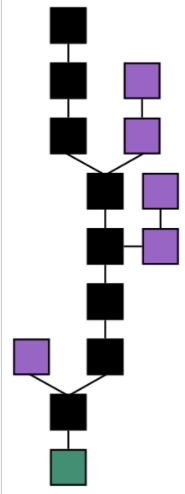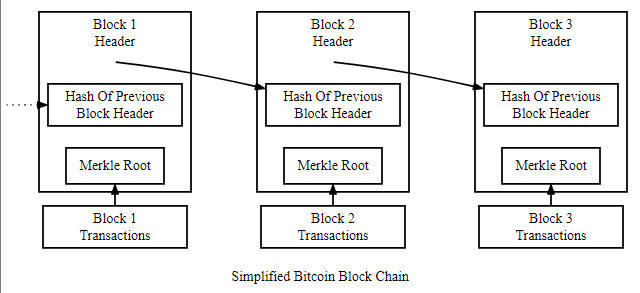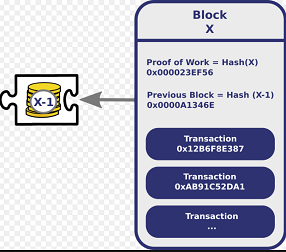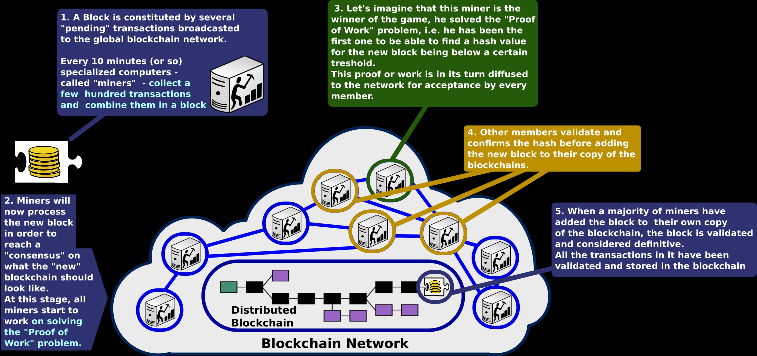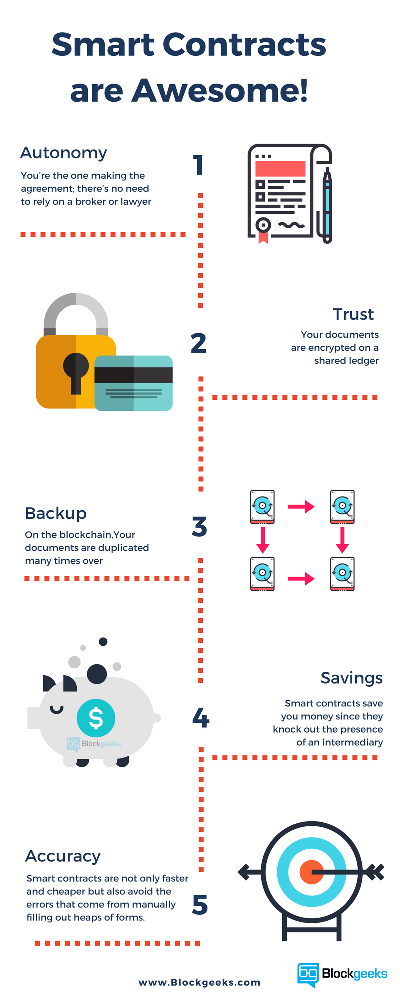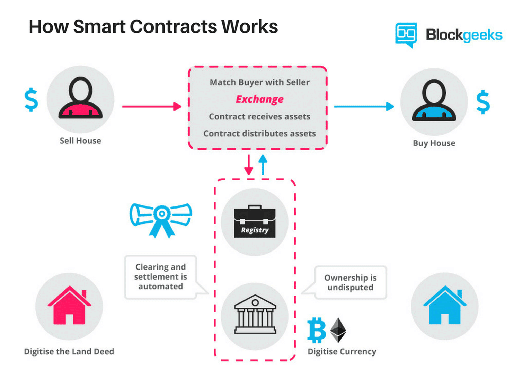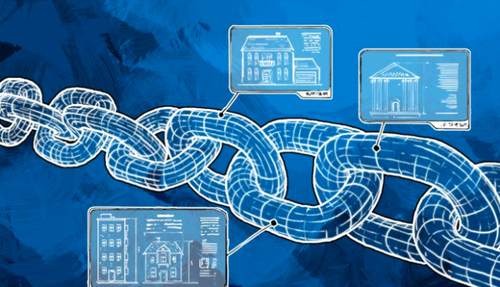|
CS6320: SW Engineering of Web Based Systems |
||||||
|
Blockchain
Blockchain = is a continuously growing list of records, called blocks, which are linked and secured using cryptography
Based on cryptography and concepts of decentralized networks
Never loose transaction information
uses decentralized network
The main chain (black) consists of the longest series of blocks from the genesis block (green) to the current block. Orphan blocks (purple) exist outside of the main chain.
Each block typically contains minimally
1) a hash pointer as a link to a previous block
2) timestamp transaction data.
Blocks
- each is added in the chain representing a change or addition to the chained information
size of block is dependent on the "type" of block protocol used --i.e. Bitcoin has gone from initial size of 1MB to 2MB (2018)
- security is strong using SHA-256 cryptography
public-key cryptography.
A public key (a long, random-looking string of numbers) is an address on the blockchain. Value tokens sent across the network are recorded as belonging to that address.
A private key is like a password that gives its owner access to their digital assets or the means to otherwise interact with the various capabilities that blockchains now support.
Decentralized Network -- important points
|
Companies are interested in using Blockchain for –cryptocurrency (see bitcoin below), smart contracts (every transaction in a contract is recorded in its own block) and more
Blockchain main website - blockchain.org
Cryptocurrency -- see Bitcoin discussion
Smart Contracts -- using Blockchain technology
How it works --the concept- what it gains you
SAFE = uses cryptography
AUTONOMY -You’re the one making the agreement; there’s no need to rely on a broker, lawyer or other intermediaries to confirm. Incidentally, this also knocks out the danger of manipulation by a third party, since execution is managed automatically by the network, rather than by one or more, possibly biased, individuals who may err.
TRUST -Your documents are encrypted on a shared ledger. There’s no way that someone can say they lost it.
BACKUP - Imagine if your bank lost your savings account. On the blockchain, each and every one of your friends has your back. Your documents are duplicated many times over.
from blockgeeks.com
visualization of blocks in a chain here representing different archetectural drawings that are part of a contract or mutliple contracts
Blockchain Mining
A fudamental concept that makes Blockchain technology "decentralized" is the fact that there are 3rd parties (many of them) involved in hosting/implementing mining.
What is it? Must quickly hash to determine if the proposed block to be added in the chain is valid -does come from the agreed upon source and is not replicated.
In exchange for a 3rd party doing this work --they get some fraction of a bitcoin (this can be done with a kind of bidding process, there are copanies like NiceCash https://www.nicehash.com/ that register miners specifically for mining of Bitcoins) ...in the beginning this really paid now you see a lot of this business going to places like China and east eurpose where costs (people, power, resources) are cheaper.
Hashing calculations are done fastest, most cheaply (power,resources) will special purpose hardware --collection of which are called "mining rigs" ... you also need special software to do the mining as per protocol specifications found at github found at https://github.com/bitcoin/bitcoin
Blockchain Frameworks -- no set leader
Ethereum
Resources
https://blockgeeks.com
Coco by Microsoft
Challenges , Risks
Must maintain your private key(s) --this uses public/private key encryption and protecting your private key is super important --its like the key to your car, if someone steals it they can steal your car.
Security Flaw??? May seem silly but the uber rich person getting their hands on a Quantum computer and taking over the majority vote in block minning process --crashing the system
